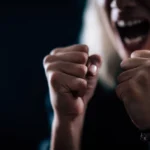978-315-9002
*Our services may be labeled as “IOP” (Intensive Outpatient) by insurance providers. However, in Massachusetts, we are officially designated as a Psychiatric Day Treatment facility, adhering to the guidelines and standards set by the Massachusetts Department of Public Health. We use the term IOP or Intensive Outpatient because it is widely recognized by insurance companies and individuals seeking psychiatric day treatment in Massachusetts.


Psychiatric Day Treatment* in Wilmington Massachusetts
Conditions We Treat
Recent Posts
January 19, 2026
Sudden Anger Mental Health Signs
January 12, 2026
Sleep Disturbances: A Mental Health Warning
January 5, 2026
Isolation Mental Health Warning Signs to Watch For in Others
December 29, 2025





